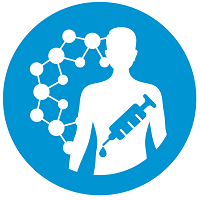Preclinical, Clinical, and Translational Sciences
Rapid Fires: Translating Animal PK, Toxicology, and Biomarkers to Clinical Success
Mechanistic Data to Support Iron-Carbohydrate Nanoparticle PBPK Models
Wednesday, November 12, 2025
3:30 PM - 3:45 PM CT
Location: 225 CD

Amy Alston, PharmD, MS (she/her/hers)
Medical Lead, Translational Science, Iron Portfolio
CSL Vifor
Ann Arbor, Michigan
Rapid Fire Speaker(s)
Intravenous iron-carbohydrate complexes are nanomedicines that are widely used globally to treat iron deficiency and iron deficiency anemia associated with a wide spectrum of disease states. Despite being widely used in clinical practice for more than seven decades, the understanding of their in vivo disposition including tissue biodistribution and kinetics of the nanoparticle degradation at the cellular level, is not well understood. Moreover, the critical quality attributes that influence in vivo pharmacokinetics have not been fully defined. In particular, the particle size and the carbohydrate moiety appear to have an influential role in how the nanoparticulate iron-carbohydrate complex interacts with the biological system. Developing a physiologically based pharmacokinetic (PBPK) model would facilitate a deeper understating of the key nanomedicine attributes that predict in vivo performance. This program will describe new mechanistic data focused on iron nanoparticle cellular uptake and the relationship of physicochemical parameters to biodistribution in vivo.
Learning Objectives:
- Upon completion, participant will be able to describe integration of principal parameters needed to develop a PBPK model for nanomedicines using iron-carbohydrate complexes as a roadmap.
- Upon completion, participant will be able to develop a strategy to evaluate potential relatationships between physicochemical parameters and disposition of the nanomedicine in vivo
- Upon completion, participant will be able to describe approaches to using physicochemical data, mechanistic pharmacological principles and in vivo pharmacokinetic data to support future development of PBPK models for complex nanomedicines.


